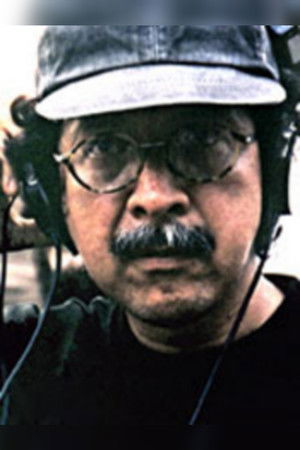
Luis Fernando Bottia
Luis Fernando Bottía (1954-) was born in Barranquilla, Colombia. He graduated in Political Science at the Universidad de los Andes (Andes University) of Bogota. He was film reviewer at the Diario del Caribe Newspaper and professor of the Universidad Autónoma del Caribe y del Norte (Autonomous University of The Caribbean... and the North) in Barranquilla. His work in the cinema as filmmaker and screenwriter began in the 1980s decade. In 1981, he received a mention in the Cocultura Film festival, Colombia for Carnaval en blanco y negro (screenwriter and director). He won the First Prize at the Bogota Film Festival (1983) and the same year the special mention in Huelva Latin Film Festival (Spain) for the medium length film El Guacamaya (screenwriter and director). In 1986, he released his first feature film, La boda del acordionista, which won the Coral award for the Best First Work at the New Internationa Festival of the New Latin American Cinema of .Havana, Cuba. He also won some awards at the 3rd International Bogota Film Salon, the Nantes Film Festival (France) and at the Bogota Film Festival. In 1987 he directed the TV series Corralejas, which was winner of the Simon Bolivar National TV prize (1987) and of the India Catalina award at the Cartagena Film Festival. In 1990, his script Aluna was chosen by 2nd Call of the Film Projects for Children and Youth (Proyectos Cinematográficos para la Infancia y la Juventud ) in Mexico; thanks to this he was invited to participate at the International Projects Workshop that was organized by the Sundance Institute and the International Film and Television School of San Antonio de los Baños, Cuba. In 1992 he wrote and directed the documentary video Cepeda y el Cine. In 1995, he was awarded as Best Director at the Racine Theather Festival, U.S. for his theater play Las muñecas que hace Juana no tienen ojos. In 1997, he directed the Colombian-Spanish documentaryLa Cartagena de García Márquez. In October 2002, his screenplay Las amigas was chosen to participate in the Latin America Feature Film Project Development Workshop & Competition, organized by the Motion Pictures Association of América – Latin America, Miami U.S. A.. In March 2003 he began his function as director of the Film and Audiovisual Program of the Magdalena University. In 2005 he won a grant in the post production category of the Film Development Fund with his second feature film Juana tenía el pelo de oro, which had already won the National Film Grant of Cocultura. This film was coproduced by Colombia, Mexico and Cuba and was released in Colombia in 2007.
También conocido como:
Pacho Bottía